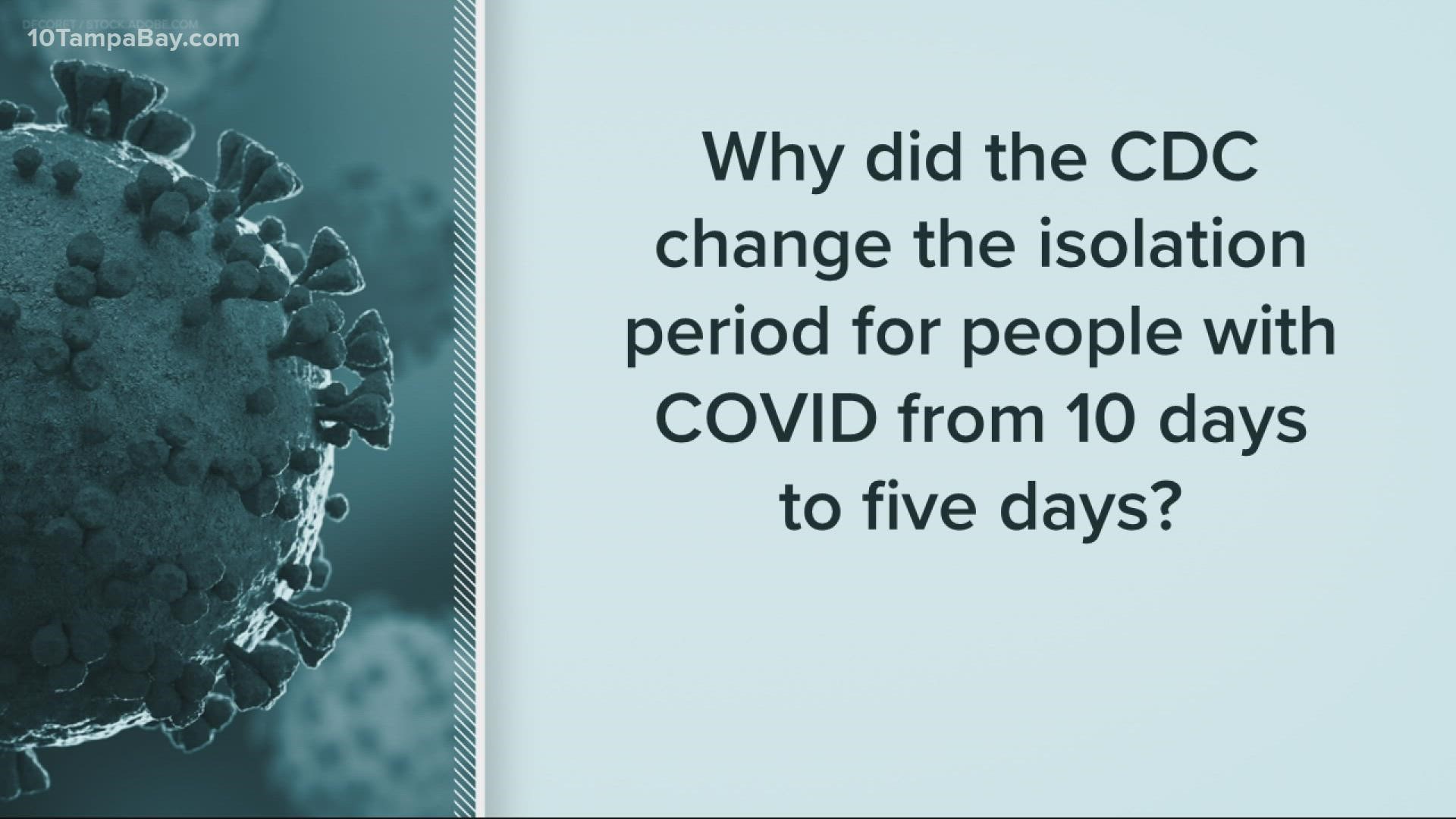Florida is seeing a major spike in COVID-19 cases, and the newest, fast-spreading omicron variant is largely to blame.
But you may be wondering: what's so different about the omicron variant and what makes it spread so quickly?
According to scientists, a lot of it has to do with something called the incubation period — or the time it takes to start feeling symptoms after you're exposed.
The CDC doesn't break down the different incubation periods for the different COVID variants, but simply states that it's "thought to extend to 14 days, with a median time of 4-5 days from exposure to symptoms onset."
However, new studies — like this November study from the Norwegian Institute of Public Health — show that the incubation period for the omicron COVID variant could be as little as three days.
This short incubation period likely means that someone can become contagious more quickly, and in turn, help the outbreak spread more quickly, epidemiologist Jennifer Nuzzo told The Atlantic.
And that's what seems to be happening.
Florida had 125,201 new COVID-19 cases reported last week, according to the department of health's latest report. The week before, just 29,519 were reported.
That's more than 95,000 in just one week in the Sunshine State.
So what should we do to protect ourselves? Health experts say the best plan of action is to get vaccinated and boosted.
"Those people who are vaccinated or vaccinated and boosted, tend to have mild symptoms," Dr. Michael Teng, a virologist and associate dean for USF's College of Medicine, told 10 Tampa Bay.
"Anecdotally, it’s mostly the unvaccinated people that are hospitalized," he added.
And if you are exposed to COVID-19, it's a good idea to get tested about 72 hours later, given the potentially short incubation period, Dr. William Schaffner, an infectious disease expert at the Vanderbilt University Medical Center, told NBC News.

